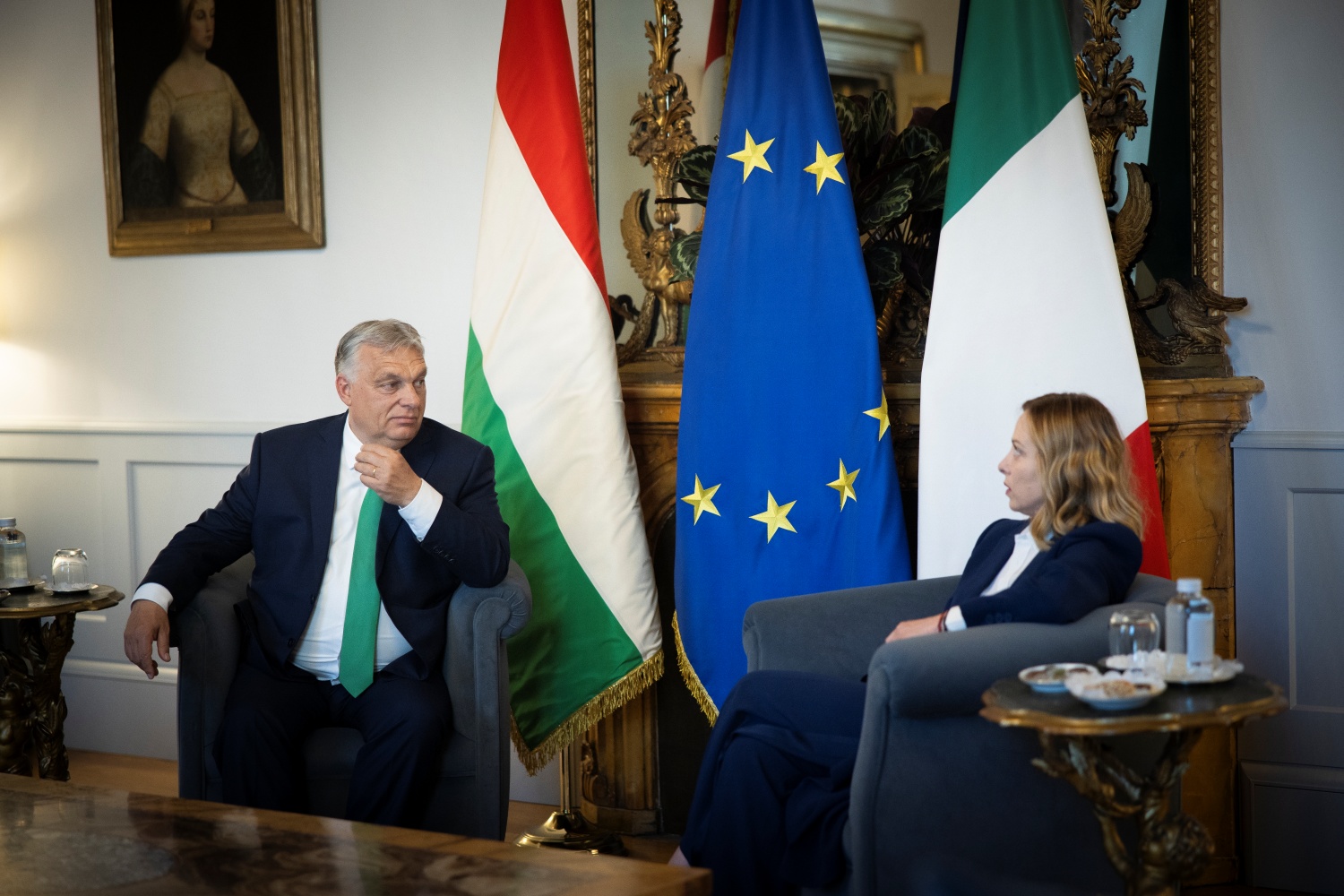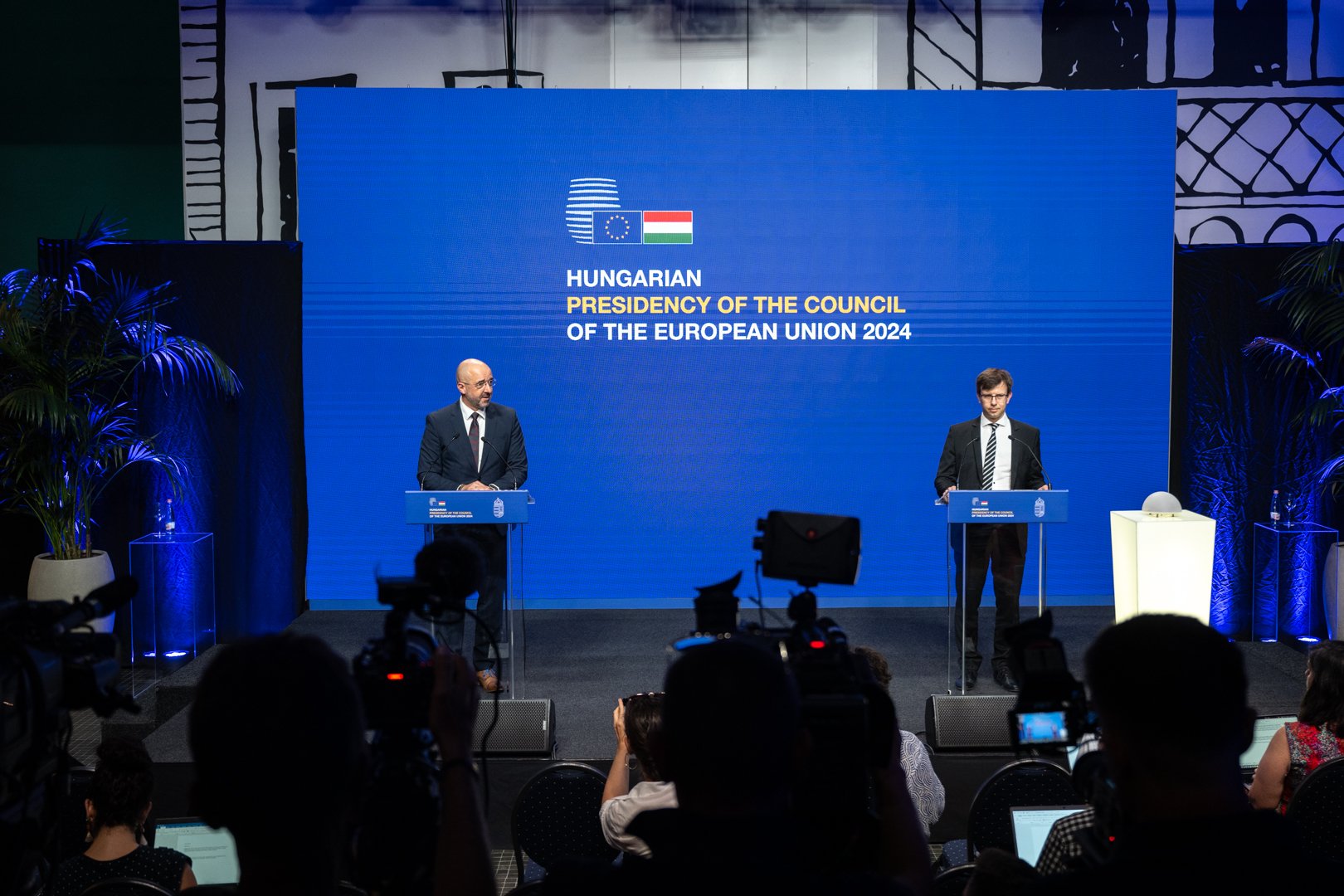
The heads of government also announced a new area of cooperation between Italy and Hungary.Continue reading

Today, July 1, marks the official start of Hungary’s six-month presidency of the Council of the European Union. On behalf of the Hungarian government, Viktor Orbán will today officially take over the presidency from Belgian Prime Minister Alexander De Croo in Brussels.
For the first time, Hungary held the rotating presidency in the framework of the Spanish-Belgian-Hungarian “trio” from January 1, 2010 to June 30, 2011. The motto of the presidency program at that time was “Strong Europe.” The main priorities of the presidency included the creation of jobs, the strengthening of EU policies and the responsible enlargement of the EU. Prior to this year’s Hungarian presidency, Belgium held the presidency and Hungary will be followed by Poland.
Welcome Hungary @HU24EU , which has just taken over the Council presidency.
It’s going to be an exciting six months!#HU24EU pic.twitter.com/lujYkGZKIx
— EU Council (@EUCouncil) July 1, 2024
The presidency of the Council of the European Union is both a job of influence and a job of limited time. But it will certainly be enough time for Hungarian politics, often labelled as “anti-European,” to show that it is capable of working for a strong Europe, Magyar Nemzet points out.
This is also reflected in the motto of the Hungarian presidency: “Make Europe Great Again!”
As Hungary Today reported before,the Hungarian program identifies seven key priorities:
To achieve these goals, Hungary will organize formal and informal Council meetings, projects, conferences and invite EU leaders to the country.
However, the road to the Hungarian presidency has not been without its challenges. Some MEPs have repeatedly called for blocking the Hungarian presidency because they questioned Hungary’s ability to credibly hold it. More than a year ago, they argued that Hungary was violating the EU’s fundamental values and was not abiding by the principle of loyal cooperation. Later, criticisms that the Hungarian presidency represents Russian and Chinese interests were also voiced.
Zoltán Kovács, the government commissioner responsible for the preparation and implementation of the operational tasks of the 2024 Hungarian presidency, responding to the criticism, said that “the repeated accusations that Hungary is promoting Russian or Chinese interests are completely unfounded and part of a broader narrative aimed at damaging Hungary’s reputation. We would encourage malicious critics to give Hungary the opportunity to demonstrate its capabilities and commitment.”
He added:
The Presidency of the Council of the European Union carries with it a considerable responsibility and Hungary is fully aware of the implications. We are committed to serve as an impartial mediator during the Presidency, ensuring that the interests of the whole European Union are protected.”
The Hungarian presidency comes at a difficult time: following the EP elections in early June, a new “pro-war” EP coalition has emerged before the decision on the three most important EU officials, the presidents of the European Commission and the European Council, and the High Representative for Foreign Affairs. “Europe is in crisis. The European Union is in decline. What the people of Europe perceive: war, migration and stagnation instead of peace, order and development,” Prime Minister Viktor Orbán said last week.
“Hungary can use the presidency to present a political alternative. Hungary is not offering this to the mainstream and the so-called rainbow coalitions, but to the people of Europe and to European interest groups,” Zoltán Kiszelly told Magyar Nemzet. The political analysis director at Századvég stressed that the Hungarian government should not make an offer to the pro-war coalitions, but to European society, which for the most part shares the Hungarian government’s position on migration, Brussels’ overbearing power, and war and peace. “This is what the Hungarian presidency should be used for, to put this political alternative on the agenda,” the expert underlined.
Via Magyar Nemzet, Featured image: X/Zoltan Kovacs